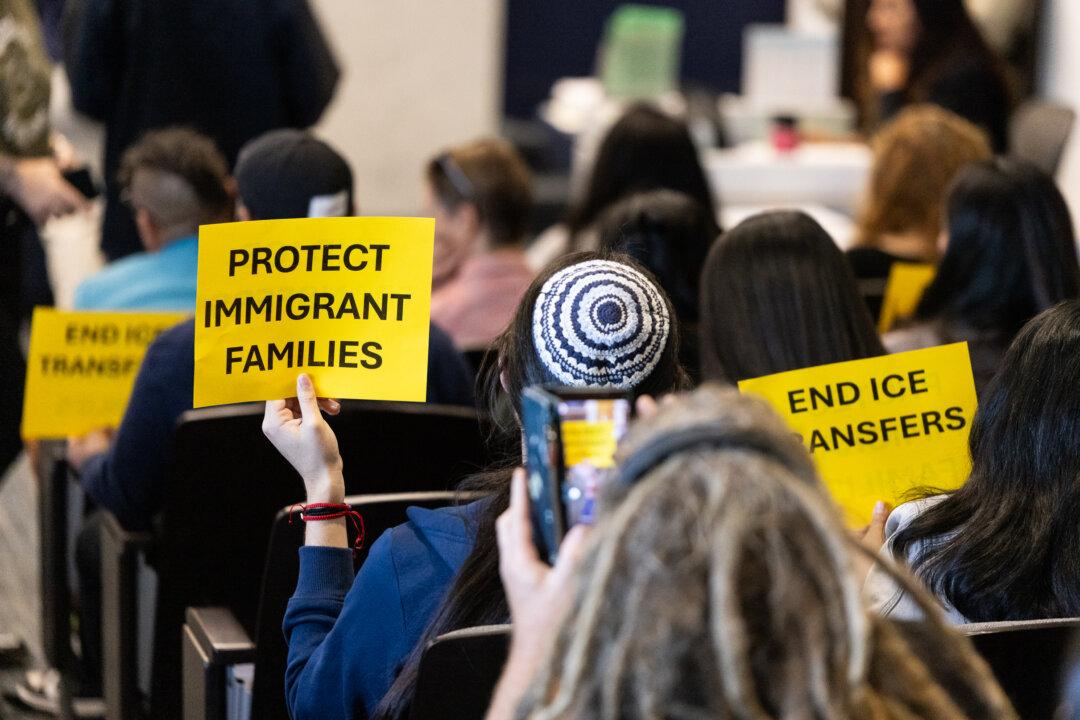A package of bills that would eliminate the sanctuary policies of an estimated 20 communities across Michigan has cleared the Michigan House Oversight Committee and is headed for a vote in the Republican-controlled state House of Representatives.
About 20 Michigan Communities With Sanctuary Policies Could Lose Funding Under Proposed Bills
State House Republicans have put forward a series of bills to end so-called sanctuary policies statewide and make any future similar actions illegal.

Sanctuary city supporters attend a San Diego Board of Supervisors meeting in San Diego on Dec. 10, 2024. John Fredricks/The Epoch Times




